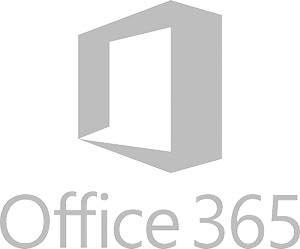Cloud Hosted Solutions
Cloud computing is the delivery of computing services over the internet (“the cloud”), enabling users to access technology resources on demand without the need for owning and managing physical infrastructure. It allows individuals and organizations to store data, host applications, process computations, and use software through remote servers hosted on the internet.
Key Features of Cloud Computing:
- On-Demand Self-Service: Users can provision computing resources automatically, as needed, without requiring human intervention from the service provider.
- Broad Network Access: Resources are accessible over the internet using a variety of devices, such as laptops, tablets, and smartphones.
- Resource Pooling: Computing resources are pooled to serve multiple users, with resources dynamically allocated and reallocated as needed.
- Scalability and Elasticity: Resources can be scaled up or down quickly based on demand, ensuring cost efficiency and flexibility.
- Pay-as-You-Go Pricing: Users pay only for the resources they consume, often based on usage metrics like hours, storage size, or data transfer.
Types of Cloud Computing Services:
- Infrastructure as a Service (IaaS):
- Provides virtualized computing resources like servers, storage, and networking.
- Examples: Amazon Web Services (AWS), Microsoft Azure, Google Compute Engine.
- Platform as a Service (PaaS):
- Offers a platform for developers to build, test, and deploy applications without worrying about underlying infrastructure.
- Examples: Heroku, Google App Engine, Microsoft Azure App Services.
- Software as a Service (SaaS):
- Provides software applications over the internet, accessible through a web browser or app.
- Examples: Google Workspace (Gmail, Docs), Microsoft Office 365, Salesforce.
- Function as a Service (FaaS) (Serverless Computing):
- Allows users to execute functions or code snippets without managing servers, scaling resources automatically.
- Examples: AWS Lambda, Google Cloud Functions.
Deployment Models:
- Public Cloud: Services are delivered over the internet and shared among multiple organizations.
- Private Cloud: Dedicated to a single organization, either hosted on-premises or by a third party.
- Hybrid Cloud: Combines public and private clouds, allowing data and applications to be shared between them.
- Community Cloud: Shared infrastructure for a specific community or group with common goals or compliance requirements.
Benefits of Cloud Computing:
- Cost Efficiency: Reduces the need for upfront capital investment in hardware and infrastructure.
- Flexibility: Offers the ability to scale resources according to business needs.
- Global Accessibility: Services can be accessed from anywhere in the world.
- Reliability: High availability and redundancy are typically built into cloud platforms.
- Enhanced Collaboration: Teams can work together from different locations using shared resources.
Cloud computing has become a cornerstone of modern IT infrastructure, enabling innovations across industries such as healthcare, finance, retail, and entertainment.
Hosted email services are cloud-based solutions that provide email functionality without requiring an organization to manage its own email servers. The service provider hosts and maintains the email infrastructure, offering businesses and individuals a reliable, secure, and scalable way to send, receive, and store email.
Key Features of Hosted Email Services:
- Managed Infrastructure:
- The email servers, storage, and other components are maintained by the service provider.
- Users don’t need to worry about updates, patches, or hardware failures.
- Accessibility:
- Accessible via web interfaces, mobile apps, or desktop email clients.
- Users can access their email from any device with an internet connection.
- Security:
- Hosted email providers often include built-in security features like spam filtering, malware protection, and encryption.
- Many services comply with data protection regulations like GDPR or HIPAA.
- Scalability:
- Easily scalable to accommodate growing businesses or changing user needs.
- Additional storage and user accounts can be added as required.
- Collaboration Tools:
- Many hosted email services integrate with calendars, contacts, task managers, and productivity tools.
Benefits of Hosted Email Services:
- Reduced Costs:
- Eliminates the need for purchasing and maintaining in-house email servers.
- Typically uses a subscription model (pay-per-user or per-mailbox).
- Reliability:
- Providers offer high uptime guarantees and redundant systems to ensure email availability.
- Enhanced Security:
- Regular updates and professional-grade security measures protect against cyber threats.
- Support:
- Technical support is often included in hosted email service plans.
- Backup and Recovery:
- Providers offer automated backups and data recovery options to prevent email loss.
Common Hosted Email Providers:
- Google Workspace (formerly G Suite):
- Includes Gmail for business, Google Drive, Google Calendar, and more.
- Microsoft 365 (formerly Office 365):
- Includes Outlook for email, as well as other Office apps and collaboration tools.
Types of Hosted Email Services:
- Basic Email Hosting:
- Provides standard email functionalities like sending, receiving, and organizing emails.
- Enterprise Email Hosting:
- Includes advanced features like larger storage limits, integrations with other business tools, and compliance with industry standards.
- Encrypted Email Hosting:
- Offers secure email services with encryption for sensitive communications.
Hosted email services are an essential tool for businesses and individuals looking for a secure, reliable, and hassle-free email solution. They allow organizations to focus on their core activities rather than managing complex email infrastructure.
Compliance and e-discovery risks exist for organizations of all types today. A proactive strategy for managing these risks includes email archiving and search tools that allow organizations to respond quickly and effectively when the need arises. CSS Apps customers can purchase archiving and search tools as an add-on product for CSS Apps.
Archiving and e-discovery, powered by Postini, provides the ability to:
- Allow administrators to search a centralized email archive
- Set email retention periods for up to 10 years to comply with corporate policies
- Implement litigation holds to preserve email messages
- Identify and export email messages for further analysis & review
Archiving and discovery tools are available as an add-on for Google Apps for Business and Education Edition. If you are interested in purchasing our Message Discovery, please contact sales.
If you are interested in standalone versions of these Services for your existing email server, please contact sales.
Check out our “Archiving and discovery” datasheet for more information.
Google Docs – online documents with real-time collaboration
Web-based documents, spreadsheets, drawings and presentations that let users edit the same file at the same time so you always have the latest version.
Anytime, anywhere access to your work
Google Docs is securely powered by the web, giving you the flexibility to be productive from your desk, on the road, at home and on your mobile phone, even when you’re offline.
Works across operating systems
Google Docs works in the browser on PC, Mac, and Linux computers, and supports popular formats such as .doc, .xls, .ppt, and .pdf.
Easily upload and share files
Files stored on Google Docs are always accessible and backed-up online.
Secure access controls
Administrators can manage file sharing permissions system-wide, and document owners can share and revoke file access at any time.


